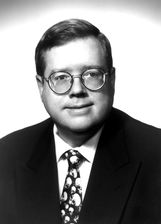An update is overdue: visiting and spending time with family, blood and soon-to-be in-law kin, over the holidays is done. Kept busy with reading, too: Thomas Kyd's
The Spanish Tragedy, Christopher Marlowe's
The Jew of Malta, and Dean Koontz's
Odd Thomas. Awaiting the Son of Stephen King, Bram Stoker Award-winner, Joe Hill's first novel to be published,
Heart-Shaped Box: a supernatural tale of horror
about
an aging rock star and sometimes collector of things morbid named Judas Coyne, who buys a ghost for sale on the Internet. Hill's first published book
20th Century Ghosts is a rare, highly-recommended (and multiple award-winning) collection of entertaining, literary short stories that are unlike any Horror being written today. His writing skill is capably poetic but readable by today's standards, a symmetry of fear-mongering wit and delight, something that is inimitable. Clive Barker, Dean Koontz and Graham Masterton come close with their striking imagination and poetic writing in three books -
Books of Blood,
Odd Thomas and
Spirit - to achieving works of epistolary saint

hood, like Paul, replete with that halo of canonization, where Joe Hill seems with
20th Century Ghosts an iconographic writer with promise, a potential Messiah of Horror: having both literary and horror credilibity.
His father Stephen King is in that alternative league of Horror writers who describe poetically iconographic - or perhaps, iconoclastic - images, settings and situations using words to affect Fear in his readers. They are writers who plunge their readers into Psychological States of Horror usually rooted in freakishly realistic, historical and/or psychology traumas, which sometimes incorporate the Supernatural - like Bentley Little's The Burning - but usually refrain - such as Ramsey Campbell's The Face That Must Die or John Saul's Punish The Sinners.
I'm finishing reading Bentley Little's The Resort tonight, and hope to start John Saul's The Manhattan Hunt Club by tomorrow. That is, if my landlord isn't nagging me again, trying to collect the rent earlier this month -- since her daughter who handles the money is flying to Guyana for who knows how long.






 A few nights ago, I finished reading Jack Ketchum's
A few nights ago, I finished reading Jack Ketchum's 
